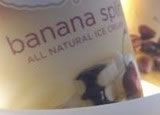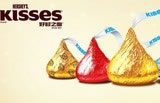R&D in action: Highlights from the 2013 Food Technology & Innovation Forum
 How can you get more bang for your R&D buck? How does Unilever gain deeper consumer insights online? Why don’t manufacturers share more information with key suppliers?
How can you get more bang for your R&D buck? How does Unilever gain deeper consumer insights online? Why don’t manufacturers share more information with key suppliers?
All of these questions and a host of others were addressed at the 2013 Food Technology & Innovation Forum in Chicago last month, which attracted R&D professionals from the nation’s leading food and beverage companies, from PepsiCo to Hershey, Mondelez, Abbott Nutrition, Unilever and Nestlé.
 Are all-natural claims losing their luster?
Are all-natural claims losing their luster?
The phrase ‘all-natural’ featured on 12% of new launches in 2012 versus 14% of launches in 2010, according to Mintel research. Not a big drop, but perhaps a sign that the all-natural trend may be losing a little of its luster?
Speaking at the 7th annual Food Technology & Innovation Forum in Chicago yesterday, Mintel innovation & insight director Lynn Dornblaser said that natural claims featured on 14% of new product launches in the US in 2010.
In 2012, that number had dipped to 12%.
There is some consumer fatigue around ‘natural’ While not a huge shift, it is perhaps an indication that natural claims are not quite as sexy as they used to be, she said.
“There is some consumer fatigue around ‘natural’, and we are starting to see companies home in on some more specific claims instead.”
But she added: “We’ve also seen that since 2010, there has been a drop off in no additives/preservatives claims, organic claims and vitamin/mineral fortified claims.”
Meanwhile, growth in several other claims – from ethical to plus or minus claims, functional claims and ‘suitable for’ claims – has also “flattened out” since 2010, she added.
However, there has been growth in some specific functional claims in areas such as heart and digestive health.
 Hershey’s Kisses are smoother, and ‘significantly less sweet’ in China, says R&D boss
Hershey’s Kisses are smoother, and ‘significantly less sweet’ in China, says R&D boss
If Hershey arrived in China later than some rivals, it has more than made up for lost time since, delegates at the Food Technology & Innovation Forum in Chicago learned this week.
And a key part of its success has been its ability to tailor products and packaging to local tastes, said global product development VP Dr Jorge Bouzas, who gave a presentation at the conference Tuesday.
After extensive testing with 3,000 consumers in three major cities, Hershey quickly discovered that Chinese consumers like chocolate that is smoother, and “significantly less sweet” than their US counterparts, he said. So it reformulated its product accordingly.
Chinese consumers also love gold, prompting Hershey to switch to gold, instead of silver, foil to wrap up its Kisses in China, he revealed.

































